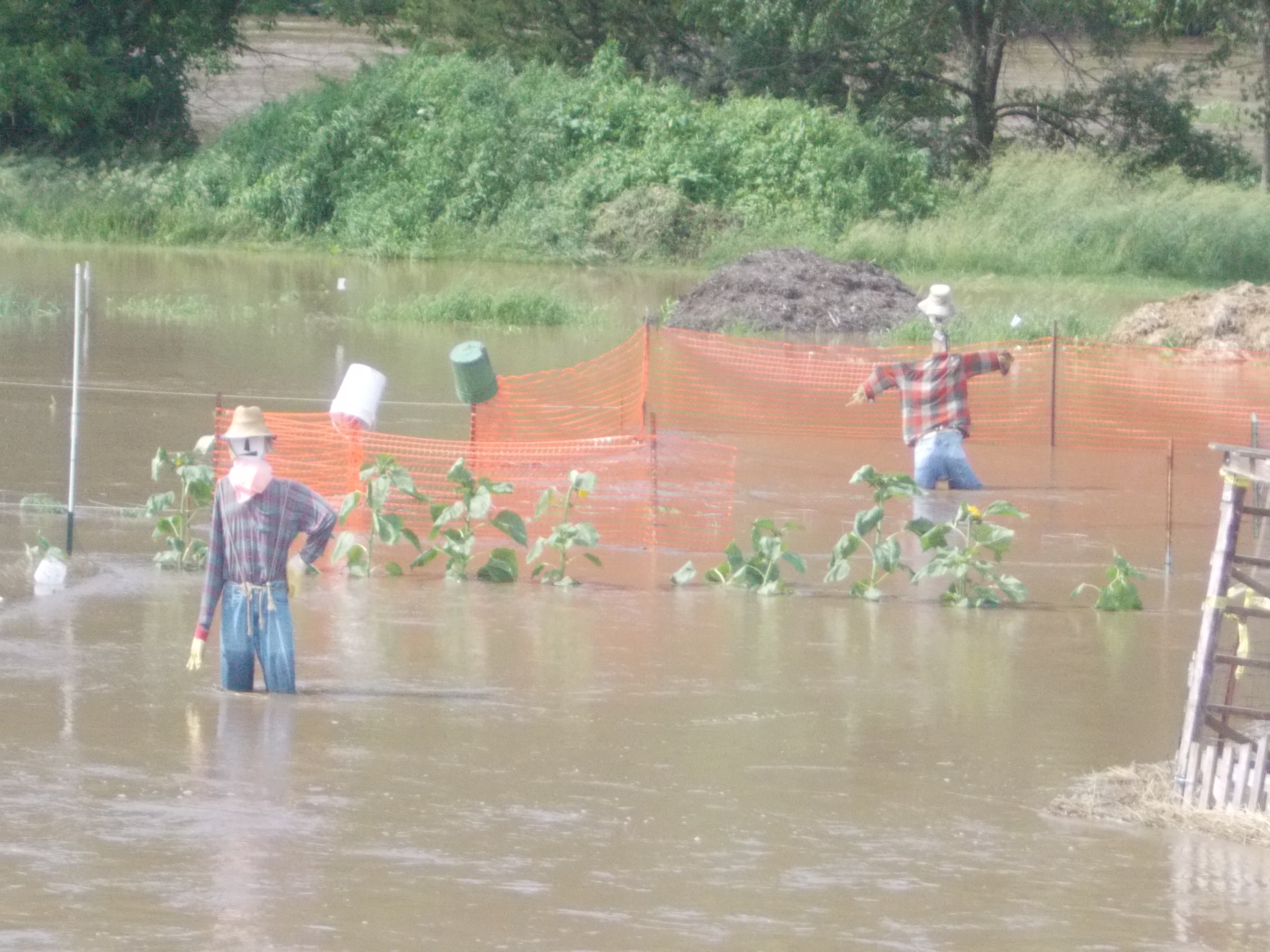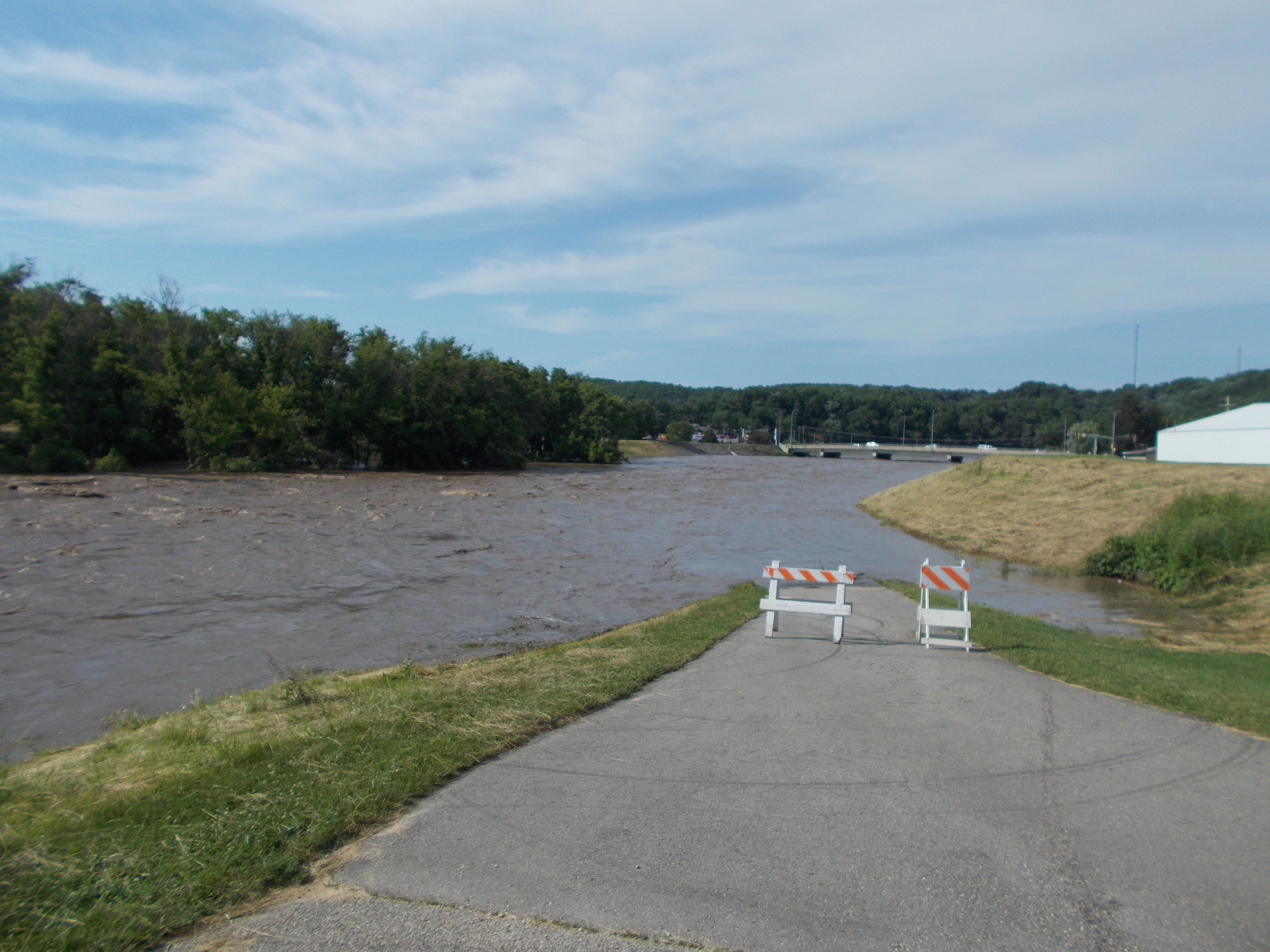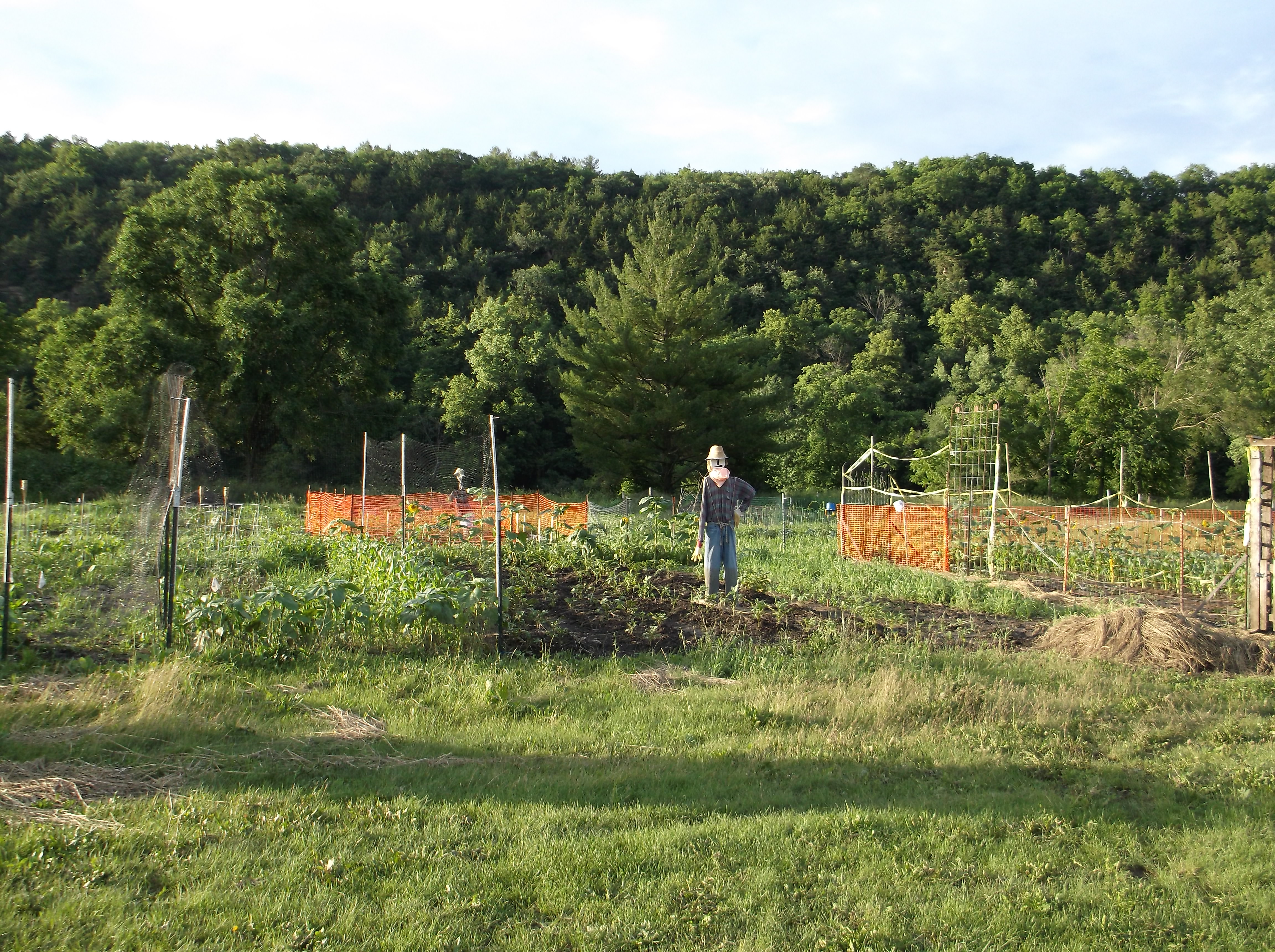Nine o’clock after my evening writing class in the community arts center and I’m coasting on my bike through the river bottoms, on my way home. Not a sound but tire-slurp in mud, animals, birds. Mist rises from the water. A rustle in the grass becomes a garter snake, a long stripe with a darker stripe down his back, who lifts his head and studies me before threading himself into the thatch of cut hay on the dike, and he’s gone. Every low wet place in the grass burbles with frog song. Herons stalk and startle as I pass, slowly as I can. I’m quiet, with my adult students’ words from the last two hours still drifting through my mind. A woman spoke of her father, risen like Jack on his beanstalk to a life far from his childhood farm. Two of us wrote of our mothers on horseback, galloping, free. One man told us the family legend of his Lakota grandmother, linking it with images of lost cities that might be dreams: Atlantis, shimmering in the depths of the sea.
Two days ago this bike path by the river was completely underwater, drowned by the rush and roar of our second big flood in five years. 2008 was worse. But this was still pretty startling, even though it came after weeks of frequent rain. We went to the top of the dike to look down at the community garden — scarecrows knee-deep in the flood. Two kayakers paddled by. The bike path was underwater all down the valley. The bridges crowded with slowed-down cars, people cruising to look at the damage that too much cruising around in cars had caused in the first place.

 “Resilience” is a word that may finally be getting the respect it needs, particularly after President Obama’s address on climate today. Even as online environmentospherists register varying levels of optimism, even as those of us in communities threatened by fracking and frac sand mining worry about the number of times he said “natural gas” (while never once saying “fracking” or even “hydraulic fracturing”), even as we CI curmudgeons wish he’d done at least some Victory-Garden, put-on-a-sweater-type lifestyle-change admonition, it’s still a good thing. But it underlines the basic reality of life in the twenty-first century: now more than ever, we have to put change into action in our own lives. We have to do the work, socially, ecologically, and psychologically, to suss out the assumptions and habits in our own lives that keep us using too much of what Big Oil and other corporations produce and keep us too silent in the face of the laws they finagle and the political “action” they buy. Be the change you wish to see in the world. We are the ones we’ve been waiting for. Cliched, but true.
“Resilience” is a word that may finally be getting the respect it needs, particularly after President Obama’s address on climate today. Even as online environmentospherists register varying levels of optimism, even as those of us in communities threatened by fracking and frac sand mining worry about the number of times he said “natural gas” (while never once saying “fracking” or even “hydraulic fracturing”), even as we CI curmudgeons wish he’d done at least some Victory-Garden, put-on-a-sweater-type lifestyle-change admonition, it’s still a good thing. But it underlines the basic reality of life in the twenty-first century: now more than ever, we have to put change into action in our own lives. We have to do the work, socially, ecologically, and psychologically, to suss out the assumptions and habits in our own lives that keep us using too much of what Big Oil and other corporations produce and keep us too silent in the face of the laws they finagle and the political “action” they buy. Be the change you wish to see in the world. We are the ones we’ve been waiting for. Cliched, but true.
Therefore, resilience from here on out is going to be about the habits of mind that foster constructive action and engagement in your community: curiosity, empathy, honesty, a willingness to ask “Why?” and see from your neighbor’s point of view, a healthy balance of skepticism at human self-importance and wonder at the unique and irreplaceable, in the human and non-human realms. It’s going to be about communities where walking and biking are safe and local foodsheds (think “watersheds”) are in place to keep food supplies (and local farm economies) stable and where your hardware store, your grocery store, and your garden center are locally owned, by people who look you in the eye and say, “We appreciate your business” and mean it, because your money stops with them. It’s about getting the habit, as people and communities, of doing things ourselves and helping each other out. Change happens here, among us, where we are.
And so does resilience, in ordinary ways. Tonight as I rode down the floodplain path, I got off my bike and walked around the community gardens that were under water two days ago. You can see thick mud around the plants, some wilting and some looking choked. But you also see thick frothy stands of green – tomatoes still upright, rinsed clean by their caretakers, and lettuce still standing in crisp little rows. Every day of sun will make things better. So will every choice we make, however small, to do the right thing, where we are.
[update:] …a week later, the resilient community garden.